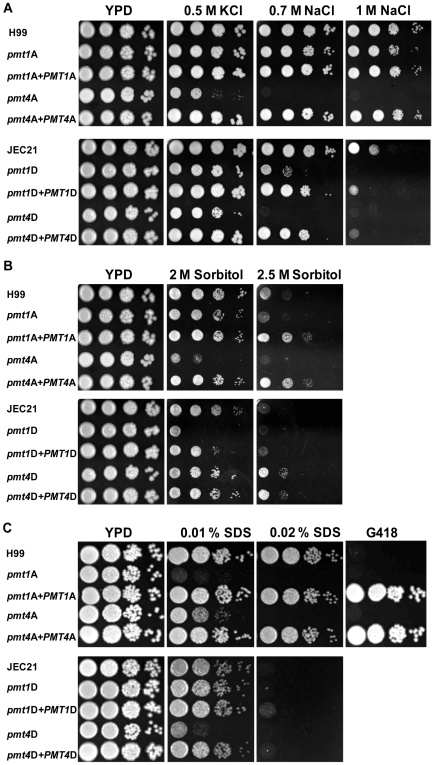Figure 6. pmt mutant strains are sensitive to hyper-osmotic stresses.
Over-night cultures of wild-type, pmt mutant and corresponding reconstituted strains from serotype A (upper panel) and serotype D (lower panel) were adjusted to an OD600 of 0.1 and diluted by 10-fold serial dilutions down to a 10−4 dilution. 5 µl of each dilution step was spotted onto YPD plates containing stress agents, and plates were incubated at the indicated temperature for 2–3 days. Strains used were the serotype A strains H99 (wild-type), pmt1A (pmt1A::URA5), pmt4A (pmt4A::URA5), pmt1A+PMT1A (pmt1A::URA5 PMT1A-NeoR) and pmt4A+PMT4A (pmt4A::URA5 PMT4A-NeoR), and the respective serotype D strains JEC21 (wild-type), pmt1D (pmt1D::URA5), pmt4D (pmt4D::URA5), pmt1D+PMT1D (pmt1D::URA5 PMT1D-NeoR) and pmt4D+PMT4D (pmt4D::URA5 PMT4D-NeoR). Strains were spotted onto YPD plates supplemented with various salts (A), sorbitol (B) or SDS (C) at indicated concentrations. To test G418 resistance (20 µg/ml) (C), over night cultures were initially diluted to an OD600 of 1.0 versus 0.1 used in all other experiments. Plates were incubated at 30°C for 2–3 days.

